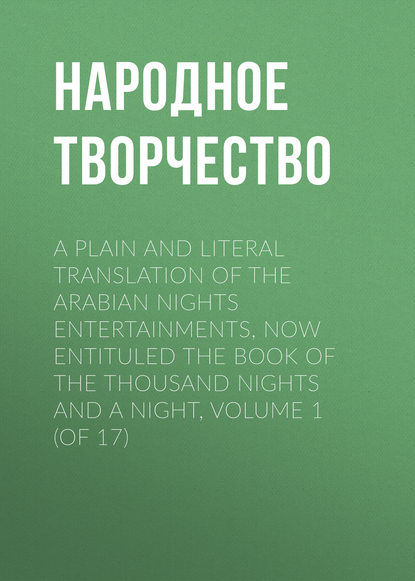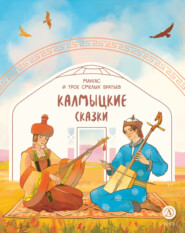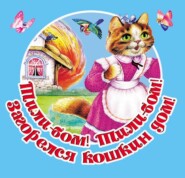По всем вопросам обращайтесь на: info@litportal.ru
(©) 2003-2024.
✖
A plain and literal translation of the Arabian nights entertainments, now entituled The Book of the Thousand Nights and a Night, Volume 1 (of 17)
Настройки чтения
Размер шрифта
Высота строк
Поля
386
"Sultan" (and its corruption "Soldan") etymologically means lord, victorious, ruler, ruling over. In Arabia it is a not uncommon proper name; and as a title it is taken by a host of petty kinglets. The Abbaside Caliphs (as Al-Wásik who has been noticed) formally created these Sultans as their regents. Al-Tá'i bi'llah (regn. A.H. 363=974), invested the famous Sabuktagin with the office; and, as Alexander-Sikandar was wont to do, fastened for him two flags, one of silver, after the fashion of nobles, and the other of gold, as Viceroy-designate. Sabuktagin's son, the famous Mahmúd of the Ghaznavite dynasty in A.H. 393=1002, was the first to adopt "Sultan" as an independent title some two hundred years after the death of Harun al-Rashid. In old writers we have the Soldan of Egypt, the Soudan of Persia, and the Sowdan of Babylon; three modifications of one word.
387
i. e. he was a "Háfiz," one who commits to memory the whole of the Koran. It is a serious task and must be begun early. I learnt by rote the last "Juzw" (or thirtieth part) and found that quite enough. This is the vulgar use of "Hafiz": technically and theologically it means the third order of Traditionists (the total being five) who know by heart 300,000 traditions of the Prophet with their ascriptions. A curious "spiritualist" book calls itself "Hafed, Prince of Persia," proving by the very title that the Spirits are equally ignorant of Arabic and Persian.
388
Here again the Cairo Edit. repeats the six couplets already given in Night xvii. I take them from Torrens (p. 163).
389
This naïve admiration of beauty in either sex characterised our chivalrous times. Now it is mostly confined to "professional beauties" of what is conventionally called the "fair sex"; as if there could be any comparison between the beauty of man and the beauty of woman, the Apollo Belvidere with the Venus de Medici.
390
Arab. "Shásh" (in Pers. urine), a light turband generally of muslin.
391
This is a lieu commun of Eastern worldly wisdom. Quite true! Very unadvisable to dive below the surface of one's acquaintances, but such intimacy is like marriage of which Johnson said, "Without it there is no pleasure in life."
392
The lines are attributed to the famous Al-Mutanabbi=the claimant to "Prophecy," of whom I have given a few details in my Pilgrimage (iii. 60, 62). He led the life of a true poet, somewhat Chauvinistic withal; and, rather than run away, was killed in A.H. 354=965.
393
Arab. "Nabíz"=wine of raisins or dates; any fermented liquor; from a root to "press out" in Syriac, like the word "Talmiz" (or Tilmiz, says the Kashf al-Ghurrah) a pupil, student. Date-wine (fermented from the fruit, not the Tádi, or juice of the stem, our "toddy") is called Fazikh. Hence the Masjid al-Fazikh at Al-Medinah where the Ansar or Auxiliaries of that city were sitting cup in hand when they heard of the revelation forbidding inebriants and poured the liquor upon the ground (Pilgrimage ii. 322).
394
Arab. "Huda"=direction (to the right way), salvation, a word occurring in the Opening Chapter of the Koran. Hence to a Kafir who offers the Salam-salutation many Moslems reply "Allah yahdík"=Allah direct thee! (i. e. make thee a Moslem), instead of Allah yusallimak=Allah lead thee to salvation. It is the root word of the Mahdi and Mohdi.
395
These lines have already occurred in The First Kalandar's Story (Night xi). I quote by way of change and with permission Mr. Payne's version (i. 93).
396
Arab. "Farajíyah," a long-sleeved robe worn by the learned (Lane, M. E., chapt. i.)
397
Arab. "Sarráf" (vulg. Sayrafi), whence the Anglo-Indian "Shroff," a familiar corruption.
398
Arab. "Yahúdí" which is less polite than "Banú Isráíl"=Children of Israel. So in Christendom "Israelite" when in favour and "Jew" (with an adjective or a participle) when nothing is wanted of him.
399
Also called "Ghilmán"=the beautiful youths appointed to serve the True Believers in Paradise. The Koran says (chapt. lvi. 9 etc.) "Youths, which shall continue in their bloom for ever, shall go round about to attend them, with goblets, and beakers, and a cup of flowing wine," etc. Mohammed was an Arab (not a Persian, a born pederast) and he was too fond of women to be charged with love of boys: even Tristram Shandy (vol. vii. chapt. 7; "No, quoth a third; the gentleman has been committing – ") knew that the two tastes are incompatibles. But this and other passages in the Koran have given the Chevaliers de la Paille a hint that the use of boys, like that of wine, here forbidden, will be permitted in Paradise.
400
Which, by the by, is the age of an oldish old maid in Egypt. I much doubt puberty being there earlier than in England where our grandmothers married at fourteen. But Orientals are aware that the period of especial feminine devilry is between the first menstruation and twenty when, according to some, every girl is a "possible murderess." So they wisely marry her and get rid of what is called the "lump of grief," the "domestic calamity" – a daughter. Amongst them we never hear of the abominable egotism and cruelty of the English mother, who disappoints her daughter's womanly cravings in order to keep her at home for her own comfort; and an "old maid" in the house, especially a stout, plump old maid, is considered not "respectable." The ancient virgin is known by being lean and scraggy; and perhaps this diagnosis is correct.
401
This prognostication of destiny by the stars and a host of follies that end in-mancy is. an intricate and extensive subject. Those who would study it are referred to chapt. xiv. of the "Qanoon-e-Islam, or the Customs of the Mussulmans of India; etc., etc., by Jaffur Shurreeff and translated by G. A. Herklots, M.D. of Madras." This excellent work first appeared in 1832 (Allen and Co., London) and thus it showed the way to Lane's "Modern Egyptians" (1833-35). The name was unfortunate as "Kuzzilbash" (which rhymed to guzzle and hash), and kept the book back till a second edition appeared in 1863 (Madras: J. Higginbotham).
402
Arab. "Bárid," lit. cold: metaph. vain, foolish, insipid.
403
Not to "spite thee" but "in spite of thee." The phrase is still used by high and low.
404
Arab. "Ahdab," the common hunchback: in classical language the Gobbo in the text would be termed "Ak'as" from "Ka'as," one with protruding back and breast; sometimes used for hollow back and protruding breast.
405
This is the custom with such gentry, who, when they see a likely man sitting, are allowed by custom to ride astraddle upon his knees with most suggestive movements, till he buys them off. These Ghawází are mostly Gypsies who pretend to be Moslems; and they have been confused with the Almahs or Moslem dancing-girls proper (Awálim, plur. of Alimah, a learned feminine) by a host of travellers. They call themselves Barámikah or Barmecides only to affect Persian origin. Under native rule they were perpetually being banished from and returning to Cairo (Pilgrimage i., 202). Lane (M. E., chapts. xviii. and xix.) discusses the subject, and would derive Al'mah, often so pronounced, from Heb. Almah, girl, virgin, singing girl, hence he would translate Al-Alamoth shir (Psalm xlvi.) and Nebalim al-alamoth (1 Chron., xv. 20) by a "song for singing-girls" and "harps for singing-girls." He quotes also St. Jerome as authority that Alma in Punic (Phœnician) signified a virgin, not a common article, I may observe, amongst singing-girls. I shall notice in a future page Burckhardt's description of the Ghawazi, p. 173, "Arabic Proverbs;" etc., etc. Second Edition. London: Quaritch, 1875.
406
I need hardly describe the Tarbúsh, a corruption of the Pers. "Sar-púsh" (head-cover) also called "Fez," from its old home; and "Tarbrush" by the travelling Briton. In old days it was a calotte worn under the turban; and it was protected from scalp-perspiration by an "Arakiyah" (Pers. Arak-chín), a white skull-cap. Now it is worn without either and as a head-dress nothing can be worse (Pilgrimage ii. 275.)
407
Arab. "Tár.": the custom still prevails. Lane (M. E., chapt. xviii.) describes and figures this hoop-drum.
408
The couch on which she sits while being displayed. It is her throne, for she is the Queen of the occasion, with all the Majesty of Virginity.
409
This is a solemn "chaff;" such liberties being permitted at weddings and festive occasions.
410
The pre-Islamític dynasty of Al-Yaman in Arabia Felix, a region formerly famed for wealth and luxury. Hence the mention of Yamani work. The caravans from Sana'á, the capital, used to carry patterns of vases to be made in China and bring back the porcelains at the end of the third year: these are the Arabic inscriptions which have puzzled so many collectors. The Tobba, or Successors, were the old Himyarite Kings, a dynastic name like Pharaoh, Kisra (Persia), Negush (Abyssinia), Khakan or Khan (Tartary), etc., who claimed to have extended their conquests to Samarcand and made war on China. Any history of Arabia (as Crichton I., chapt iv.) may be consulted for their names and annals. I have been told by Arabs that "Tobba" (or Tubba) is still used in the old Himyar-land=the Great or the Chief.
"Sultan" (and its corruption "Soldan") etymologically means lord, victorious, ruler, ruling over. In Arabia it is a not uncommon proper name; and as a title it is taken by a host of petty kinglets. The Abbaside Caliphs (as Al-Wásik who has been noticed) formally created these Sultans as their regents. Al-Tá'i bi'llah (regn. A.H. 363=974), invested the famous Sabuktagin with the office; and, as Alexander-Sikandar was wont to do, fastened for him two flags, one of silver, after the fashion of nobles, and the other of gold, as Viceroy-designate. Sabuktagin's son, the famous Mahmúd of the Ghaznavite dynasty in A.H. 393=1002, was the first to adopt "Sultan" as an independent title some two hundred years after the death of Harun al-Rashid. In old writers we have the Soldan of Egypt, the Soudan of Persia, and the Sowdan of Babylon; three modifications of one word.
387
i. e. he was a "Háfiz," one who commits to memory the whole of the Koran. It is a serious task and must be begun early. I learnt by rote the last "Juzw" (or thirtieth part) and found that quite enough. This is the vulgar use of "Hafiz": technically and theologically it means the third order of Traditionists (the total being five) who know by heart 300,000 traditions of the Prophet with their ascriptions. A curious "spiritualist" book calls itself "Hafed, Prince of Persia," proving by the very title that the Spirits are equally ignorant of Arabic and Persian.
388
Here again the Cairo Edit. repeats the six couplets already given in Night xvii. I take them from Torrens (p. 163).
389
This naïve admiration of beauty in either sex characterised our chivalrous times. Now it is mostly confined to "professional beauties" of what is conventionally called the "fair sex"; as if there could be any comparison between the beauty of man and the beauty of woman, the Apollo Belvidere with the Venus de Medici.
390
Arab. "Shásh" (in Pers. urine), a light turband generally of muslin.
391
This is a lieu commun of Eastern worldly wisdom. Quite true! Very unadvisable to dive below the surface of one's acquaintances, but such intimacy is like marriage of which Johnson said, "Without it there is no pleasure in life."
392
The lines are attributed to the famous Al-Mutanabbi=the claimant to "Prophecy," of whom I have given a few details in my Pilgrimage (iii. 60, 62). He led the life of a true poet, somewhat Chauvinistic withal; and, rather than run away, was killed in A.H. 354=965.
393
Arab. "Nabíz"=wine of raisins or dates; any fermented liquor; from a root to "press out" in Syriac, like the word "Talmiz" (or Tilmiz, says the Kashf al-Ghurrah) a pupil, student. Date-wine (fermented from the fruit, not the Tádi, or juice of the stem, our "toddy") is called Fazikh. Hence the Masjid al-Fazikh at Al-Medinah where the Ansar or Auxiliaries of that city were sitting cup in hand when they heard of the revelation forbidding inebriants and poured the liquor upon the ground (Pilgrimage ii. 322).
394
Arab. "Huda"=direction (to the right way), salvation, a word occurring in the Opening Chapter of the Koran. Hence to a Kafir who offers the Salam-salutation many Moslems reply "Allah yahdík"=Allah direct thee! (i. e. make thee a Moslem), instead of Allah yusallimak=Allah lead thee to salvation. It is the root word of the Mahdi and Mohdi.
395
These lines have already occurred in The First Kalandar's Story (Night xi). I quote by way of change and with permission Mr. Payne's version (i. 93).
396
Arab. "Farajíyah," a long-sleeved robe worn by the learned (Lane, M. E., chapt. i.)
397
Arab. "Sarráf" (vulg. Sayrafi), whence the Anglo-Indian "Shroff," a familiar corruption.
398
Arab. "Yahúdí" which is less polite than "Banú Isráíl"=Children of Israel. So in Christendom "Israelite" when in favour and "Jew" (with an adjective or a participle) when nothing is wanted of him.
399
Also called "Ghilmán"=the beautiful youths appointed to serve the True Believers in Paradise. The Koran says (chapt. lvi. 9 etc.) "Youths, which shall continue in their bloom for ever, shall go round about to attend them, with goblets, and beakers, and a cup of flowing wine," etc. Mohammed was an Arab (not a Persian, a born pederast) and he was too fond of women to be charged with love of boys: even Tristram Shandy (vol. vii. chapt. 7; "No, quoth a third; the gentleman has been committing – ") knew that the two tastes are incompatibles. But this and other passages in the Koran have given the Chevaliers de la Paille a hint that the use of boys, like that of wine, here forbidden, will be permitted in Paradise.
400
Which, by the by, is the age of an oldish old maid in Egypt. I much doubt puberty being there earlier than in England where our grandmothers married at fourteen. But Orientals are aware that the period of especial feminine devilry is between the first menstruation and twenty when, according to some, every girl is a "possible murderess." So they wisely marry her and get rid of what is called the "lump of grief," the "domestic calamity" – a daughter. Amongst them we never hear of the abominable egotism and cruelty of the English mother, who disappoints her daughter's womanly cravings in order to keep her at home for her own comfort; and an "old maid" in the house, especially a stout, plump old maid, is considered not "respectable." The ancient virgin is known by being lean and scraggy; and perhaps this diagnosis is correct.
401
This prognostication of destiny by the stars and a host of follies that end in-mancy is. an intricate and extensive subject. Those who would study it are referred to chapt. xiv. of the "Qanoon-e-Islam, or the Customs of the Mussulmans of India; etc., etc., by Jaffur Shurreeff and translated by G. A. Herklots, M.D. of Madras." This excellent work first appeared in 1832 (Allen and Co., London) and thus it showed the way to Lane's "Modern Egyptians" (1833-35). The name was unfortunate as "Kuzzilbash" (which rhymed to guzzle and hash), and kept the book back till a second edition appeared in 1863 (Madras: J. Higginbotham).
402
Arab. "Bárid," lit. cold: metaph. vain, foolish, insipid.
403
Not to "spite thee" but "in spite of thee." The phrase is still used by high and low.
404
Arab. "Ahdab," the common hunchback: in classical language the Gobbo in the text would be termed "Ak'as" from "Ka'as," one with protruding back and breast; sometimes used for hollow back and protruding breast.
405
This is the custom with such gentry, who, when they see a likely man sitting, are allowed by custom to ride astraddle upon his knees with most suggestive movements, till he buys them off. These Ghawází are mostly Gypsies who pretend to be Moslems; and they have been confused with the Almahs or Moslem dancing-girls proper (Awálim, plur. of Alimah, a learned feminine) by a host of travellers. They call themselves Barámikah or Barmecides only to affect Persian origin. Under native rule they were perpetually being banished from and returning to Cairo (Pilgrimage i., 202). Lane (M. E., chapts. xviii. and xix.) discusses the subject, and would derive Al'mah, often so pronounced, from Heb. Almah, girl, virgin, singing girl, hence he would translate Al-Alamoth shir (Psalm xlvi.) and Nebalim al-alamoth (1 Chron., xv. 20) by a "song for singing-girls" and "harps for singing-girls." He quotes also St. Jerome as authority that Alma in Punic (Phœnician) signified a virgin, not a common article, I may observe, amongst singing-girls. I shall notice in a future page Burckhardt's description of the Ghawazi, p. 173, "Arabic Proverbs;" etc., etc. Second Edition. London: Quaritch, 1875.
406
I need hardly describe the Tarbúsh, a corruption of the Pers. "Sar-púsh" (head-cover) also called "Fez," from its old home; and "Tarbrush" by the travelling Briton. In old days it was a calotte worn under the turban; and it was protected from scalp-perspiration by an "Arakiyah" (Pers. Arak-chín), a white skull-cap. Now it is worn without either and as a head-dress nothing can be worse (Pilgrimage ii. 275.)
407
Arab. "Tár.": the custom still prevails. Lane (M. E., chapt. xviii.) describes and figures this hoop-drum.
408
The couch on which she sits while being displayed. It is her throne, for she is the Queen of the occasion, with all the Majesty of Virginity.
409
This is a solemn "chaff;" such liberties being permitted at weddings and festive occasions.
410
The pre-Islamític dynasty of Al-Yaman in Arabia Felix, a region formerly famed for wealth and luxury. Hence the mention of Yamani work. The caravans from Sana'á, the capital, used to carry patterns of vases to be made in China and bring back the porcelains at the end of the third year: these are the Arabic inscriptions which have puzzled so many collectors. The Tobba, or Successors, were the old Himyarite Kings, a dynastic name like Pharaoh, Kisra (Persia), Negush (Abyssinia), Khakan or Khan (Tartary), etc., who claimed to have extended their conquests to Samarcand and made war on China. Any history of Arabia (as Crichton I., chapt iv.) may be consulted for their names and annals. I have been told by Arabs that "Tobba" (or Tubba) is still used in the old Himyar-land=the Great or the Chief.

















